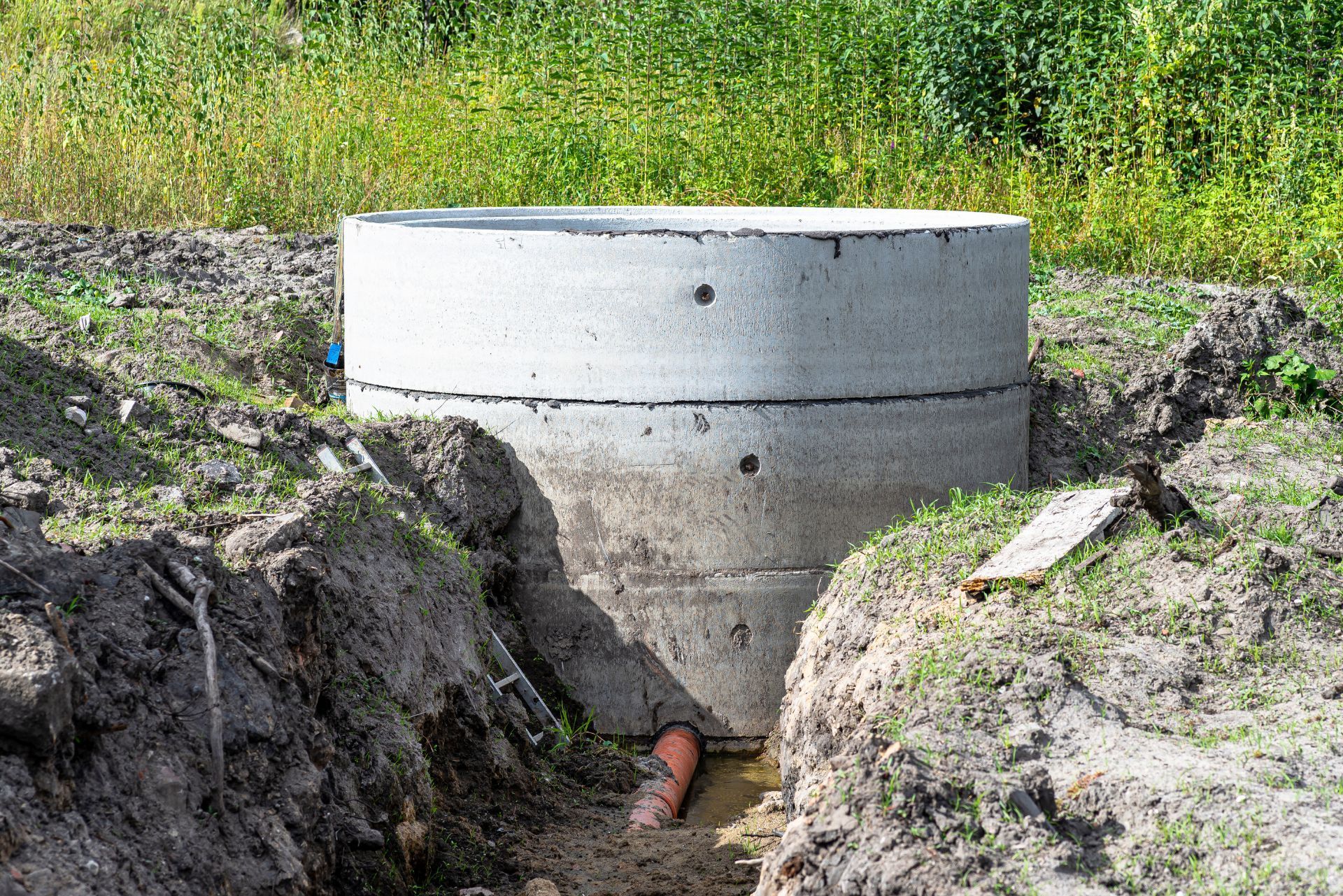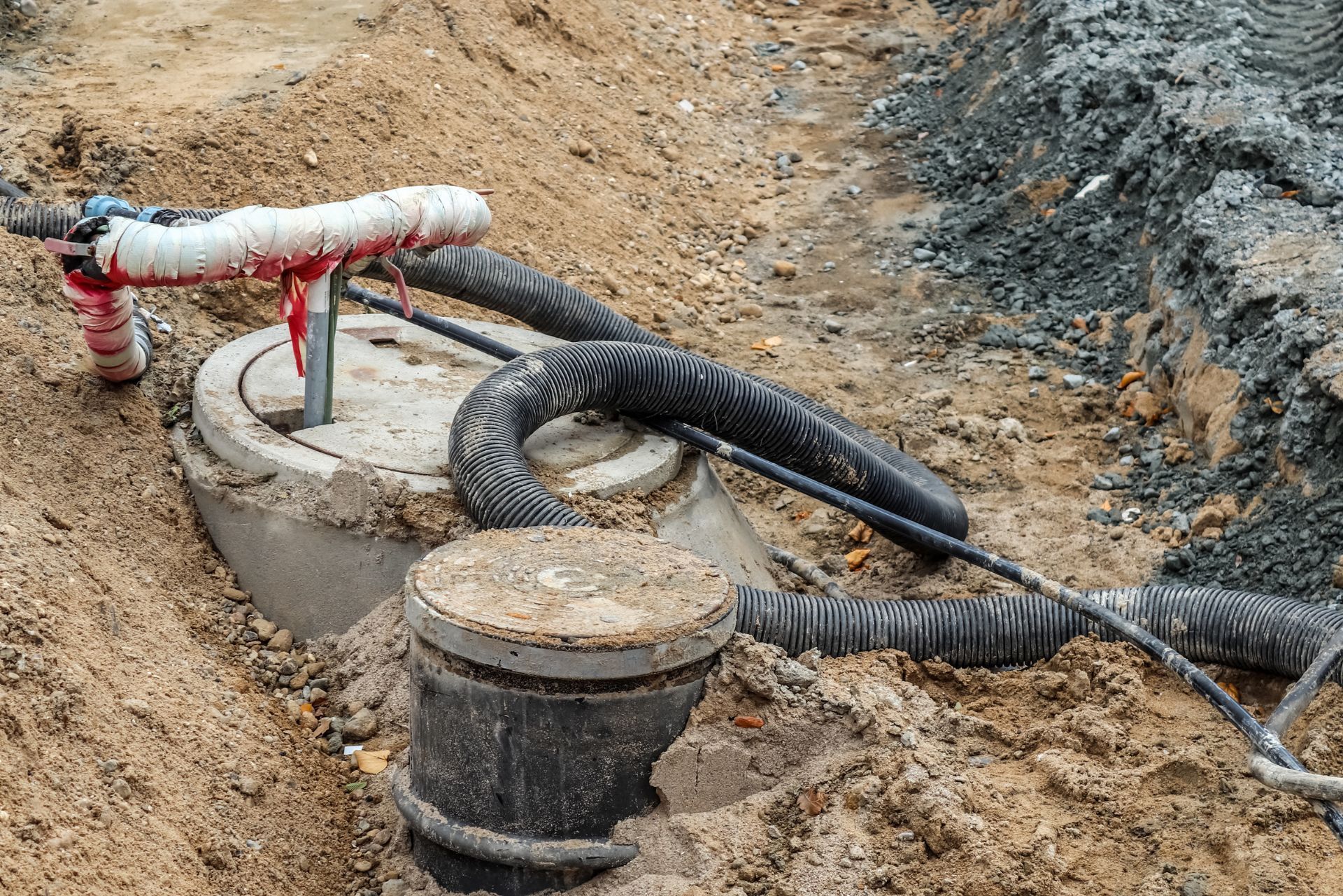South Carolina Septic Contractor Insurance

9:00am - 5:00pm Mon-Fri
Will Reply in 15min*
Index
The Importance of Insurance for Septic Contractors
Types of Insurance Coverage for Septic Contractors
Factors Affecting Insurance Costs
How to Choose the Right Insurance Provider
Understanding Policy Exclusions and Limitations
The Claims Process: What to Expect
Contact Us
Phone
864-626-6181
service@southerninsured.com
Location
5 Century Drive Suite 130 Greenville, SC 29607
810 Dutch Square Boulevard, Suite 123 Columbia, SC 29210
Operating a septic contracting business in South Carolina comes with its own set of challenges and responsibilities. One of the most critical aspects of running such a business is ensuring that you have the right insurance coverage. This article aims to provide a comprehensive overview of septic contractor insurance in South Carolina, covering its importance, types of coverage available, and tips for selecting the right policy.
The Importance of Insurance for Septic Contractors
Insurance is not just a legal requirement for many businesses; it is a safety net that protects contractors from unforeseen circumstances. For septic contractors, the stakes are particularly high due to the nature of the work involved. The installation and maintenance of septic systems require specialized knowledge and skills, and any misstep can lead to costly repairs or environmental damage. Thus, having comprehensive insurance coverage is not merely a formality; it is an essential component of a contractor's operational strategy.
Risk Management
Septic contractors face numerous risks, including property damage, bodily injury, and environmental hazards. A single incident can lead to significant financial losses, lawsuits, or even the closure of the business. Having the right insurance helps mitigate these risks, allowing contractors to focus on their work without the constant worry of potential liabilities. Moreover, effective risk management through insurance can enhance a contractor's reputation, as clients are more likely to trust a business that is adequately insured, knowing that they are protected in case of any mishaps during the project.
Legal Requirements
In South Carolina, certain types of insurance are mandated by law for contractors. For instance, workers' compensation insurance is required if a contractor has four or more employees. Additionally, liability insurance may be necessary to comply with local regulations and to secure contracts with clients. This legal framework not only protects the workers but also ensures that clients are safeguarded against potential damages caused by contractor negligence. Furthermore, staying compliant with these insurance requirements can also open doors to more lucrative contracts, as many clients will only consider contractors who can provide proof of adequate insurance coverage.
Furthermore, septic contractors should consider additional types of insurance to further protect their businesses. For example,
pollution liability insurance can be crucial, given the potential for hazardous waste spills or leaks during septic system installations or repairs. This coverage can help cover cleanup costs and legal fees associated with environmental damage claims. Additionally, equipment insurance is vital for contractors who rely on expensive machinery and tools to perform their jobs. Protecting these assets ensures that a contractor can quickly resume operations after an incident, minimizing downtime and financial loss. By investing in a comprehensive insurance portfolio, septic contractors not only protect their business but also enhance their credibility and reliability in the eyes of their clients.

Types of Insurance Coverage for Septic Contractors
Choosing the right insurance coverage can be overwhelming, given the variety of options available. Here are some essential types of insurance that septic contractors should consider:
General Liability Insurance
General liability insurance is fundamental for any contractor. It protects against claims of bodily injury, property damage, and personal injury that may arise during the course of business operations. For septic contractors, this coverage is crucial, as it can cover incidents such as accidental damage to a client’s property or injuries sustained by a third party on the job site. Additionally, this insurance can also help cover legal fees should a claim escalate into a lawsuit, allowing contractors to focus on their work without the constant worry of potential financial ruin from unforeseen accidents.
Professional Liability Insurance
Also known as errors and omissions insurance, professional liability insurance covers claims related to negligence, mistakes, or failure to deliver services as promised. For septic contractors, this could include issues arising from improper installation or maintenance of septic systems, which can lead to costly damages and legal action. Moreover, this type of insurance can also provide coverage for disputes over contract terms or service delivery, which can be particularly helpful in an industry where misunderstandings can easily occur due to the technical nature of the work involved.
Workers' Compensation Insurance
Workers' compensation insurance is designed to provide financial support to employees who are injured on the job. In South Carolina, this insurance is mandatory for businesses with four or more employees. It covers medical expenses and lost wages, protecting both the employee and the employer from potential lawsuits related to workplace injuries. Furthermore, having workers' compensation insurance can enhance a contractor's reputation, as it demonstrates a commitment to employee safety and well-being, which can be a significant factor in attracting skilled labor in a competitive market.
Commercial Auto Insurance
For septic contractors, commercial auto insurance is another essential coverage to consider, especially if vehicles are used for transporting equipment and personnel to job sites. This insurance protects against damages resulting from accidents involving company vehicles, covering both property damage and bodily injury. In addition, it can also provide coverage for theft or damage to tools and equipment stored in vehicles, which can be a significant financial loss for contractors who rely heavily on their machinery for daily operations.
Pollution Liability Insurance
Pollution liability insurance is particularly relevant for septic contractors, as their work often involves handling potentially hazardous materials. This type of insurance covers claims related to pollution incidents, such as leaks or spills that may occur during the installation or maintenance of septic systems. Given the environmental regulations surrounding waste management, having this coverage can protect contractors from hefty fines and legal fees associated with environmental damage, ensuring compliance with local laws while safeguarding their business interests.
Additional Coverage Options
Beyond the essential types of insurance, septic contractors may want to consider additional coverage options that cater specifically to their business needs.
Commercial Auto Insurance
For septic contractors who use vehicles for business purposes, commercial auto insurance is vital. This coverage protects against accidents that occur while driving for work, covering damages to vehicles and injuries sustained in accidents. Personal auto insurance policies typically do not cover business-related driving, making commercial auto insurance a necessity. Furthermore, this type of insurance can also provide coverage for liability claims arising from accidents involving company vehicles, ensuring that contractors are protected from potentially devastating financial repercussions.
Equipment and Tool Insurance
Septic contractors rely heavily on specialized equipment and tools to perform their jobs. Equipment and tool insurance protects against loss, theft, or damage to these essential items. This coverage ensures that contractors can quickly replace or repair their tools, minimizing downtime and financial loss. Additionally, many policies can be tailored to include coverage for rented equipment, which is often used in the septic industry. This flexibility allows contractors to adapt to varying project requirements without the fear of incurring significant out-of-pocket expenses should something go wrong.
Pollution Liability Insurance
Given the nature of septic work, pollution liability insurance is particularly important. This coverage protects against claims related to pollution incidents, such as leaks or spills that may contaminate the environment. It is especially relevant for septic contractors who handle hazardous materials or work in sensitive areas. Moreover, this insurance can also cover legal defense costs in the event of a lawsuit, providing an added layer of protection for contractors who may face claims from affected parties. With increasing environmental regulations and public awareness of ecological issues, having pollution liability insurance not only safeguards the contractor's business but also demonstrates a commitment to responsible practices in the industry.
Factors Affecting Insurance Costs
The cost of insurance for septic contractors can vary widely based on several factors. Understanding these factors can help contractors make informed decisions and potentially save on premiums.
Business Size and Revenue
Generally, larger businesses with higher revenues will face higher insurance premiums. Insurers consider the scale of operations and the associated risks when determining costs. Smaller contractors may benefit from lower premiums, but they should still ensure adequate coverage. It's also worth noting that larger companies often have more complex operations, which can introduce additional risks that insurers must account for. For example, a larger contractor might handle multiple projects simultaneously, increasing the likelihood of accidents or errors, which can further influence insurance rates.
Claims History
A contractor's claims history plays a significant role in determining insurance costs. A history of frequent claims can lead to higher premiums, as insurers view these businesses as higher risk. Conversely, a clean claims history can result in lower rates and potential discounts. Maintaining a good claims history is not only beneficial for securing lower premiums but also for establishing a reputation in the industry. Contractors who demonstrate responsible practices and a commitment to safety are often viewed more favorably by insurers, which can lead to better coverage options and terms.
Coverage Limits and Deductibles
The amount of coverage and the deductible chosen will also impact insurance costs. Higher coverage limits often lead to higher premiums, while opting for a higher deductible can reduce costs. Contractors should carefully assess their risk tolerance and financial situation when selecting coverage limits and deductibles. It's important to strike a balance between affordability and adequate protection; underinsuring can lead to significant financial strain in the event of a major incident. Additionally, contractors may want to consider the specific risks associated with septic work, such as environmental damage or liability claims, when determining the appropriate coverage levels to safeguard their business effectively.
Location and Regulatory Environment
The geographical location of a contractor's operations can significantly influence insurance costs. Areas prone to natural disasters, such as floods or earthquakes, may see higher premiums due to the increased risk of property damage and liability claims. Furthermore, local regulations and compliance requirements can also affect insurance costs. Contractors operating in regions with stringent environmental laws may need additional coverage to protect against potential fines or legal issues arising from non-compliance. Understanding the local regulatory landscape is crucial for contractors to ensure they have the appropriate coverage in place to mitigate these risks.
Type of Services Offered
The specific services that septic contractors provide can also impact their insurance premiums. For instance, those who offer a wider range of services, such as installation, maintenance, and emergency repairs, may face different risk profiles compared to those who specialize in only one area. Additionally, specialized services may require unique insurance products or endorsements, which can further influence costs. Contractors should evaluate the full scope of their services and consult with their insurance providers to ensure they have comprehensive coverage that matches their operational needs.

How to Choose the Right Insurance Provider
Finding the right insurance provider is crucial for septic contractors. The right provider will not only offer the necessary coverage but also provide reliable support and service.
Research and Compare Providers
Start by researching different insurance providers that specialize in contractor insurance. Look for companies with a solid reputation and experience in the industry. Online reviews, testimonials, and ratings can provide valuable insights into the reliability and service quality of potential providers.
Seek Expert Advice
Consulting with an insurance broker or agent who specializes in contractor insurance can be beneficial. They can help navigate the complexities of insurance policies, provide tailored recommendations, and assist in finding the best coverage options for specific business needs.
Evaluate Customer Service
Customer service is a critical factor when selecting an insurance provider. A responsive and helpful customer service team can make a significant difference when it comes to filing claims or addressing concerns. Consider reaching out to potential providers with questions to gauge their responsiveness and willingness to assist.
Understanding Policy Exclusions and Limitations
Before finalizing an insurance policy, it is essential to thoroughly understand any exclusions and limitations that may apply. These can significantly impact coverage and claims.
Common Exclusions
Many insurance policies have common exclusions that contractors should be aware of. For instance, damage caused by intentional acts, contractual liabilities, and certain types of pollution may not be covered. Understanding these exclusions can help contractors avoid surprises when filing a claim.
Limitations on Coverage
In addition to exclusions, policies may have limitations on coverage amounts or specific conditions under which coverage applies. For example, certain high-risk activities may require additional coverage or endorsements. It is crucial to read the policy documents carefully and ask questions to clarify any uncertainties.
The Claims Process: What to Expect
Filing a claim can be a daunting process, but understanding the steps involved can help make it smoother and more manageable.
Reporting the Incident
The first step in the claims process is to report the incident to the insurance provider as soon as possible. This typically involves providing details about what happened, including any relevant documentation, photographs, or witness statements. Prompt reporting is essential for a timely resolution.
Investigation and Assessment
After a claim is filed, the insurance company will conduct an investigation to assess the validity of the claim. This may involve reviewing the submitted documentation, interviewing witnesses, and possibly sending an adjuster to inspect the site. Contractors should be prepared to cooperate with the investigation process.
Claim Resolution
Once the investigation is complete, the insurance company will make a decision regarding the claim. If approved, the contractor will receive compensation based on the terms of the policy. If the claim is denied, the contractor has the right to appeal the decision and provide additional information to support their case.
Staying Compliant with South Carolina Regulations
In addition to obtaining the right insurance coverage, septic contractors must also comply with state regulations governing their operations. Understanding these regulations is essential for maintaining a successful and legally compliant business.
Licensing Requirements
In South Carolina, septic contractors must obtain the appropriate licenses to operate legally. This often includes a general contractor's license and specific certifications related to septic system installation and maintenance. Staying updated on licensing requirements is crucial for compliance and avoiding penalties.
Environmental Regulations
Septic contractors must also adhere to environmental regulations that govern the installation and maintenance of septic systems. This includes following guidelines for waste disposal, ensuring proper system design, and obtaining necessary permits. Failure to comply with these regulations can result in fines and damage to the contractor's reputation.
Conclusion: Protecting Your Septic Contracting Business
In conclusion, septic contractor insurance is an essential component of running a successful business in South Carolina. With the right coverage, contractors can protect themselves from various risks, ensuring their operations run smoothly and legally. By understanding the types of insurance available, evaluating providers, and staying compliant with regulations, septic contractors can safeguard their livelihoods and focus on delivering quality services to their clients.
As the industry continues to evolve, staying informed about insurance options and regulatory changes will be vital for long-term success. Investing time and resources into securing the right insurance coverage is not just a legal obligation; it is a strategic move that can lead to peace of mind and business growth.






